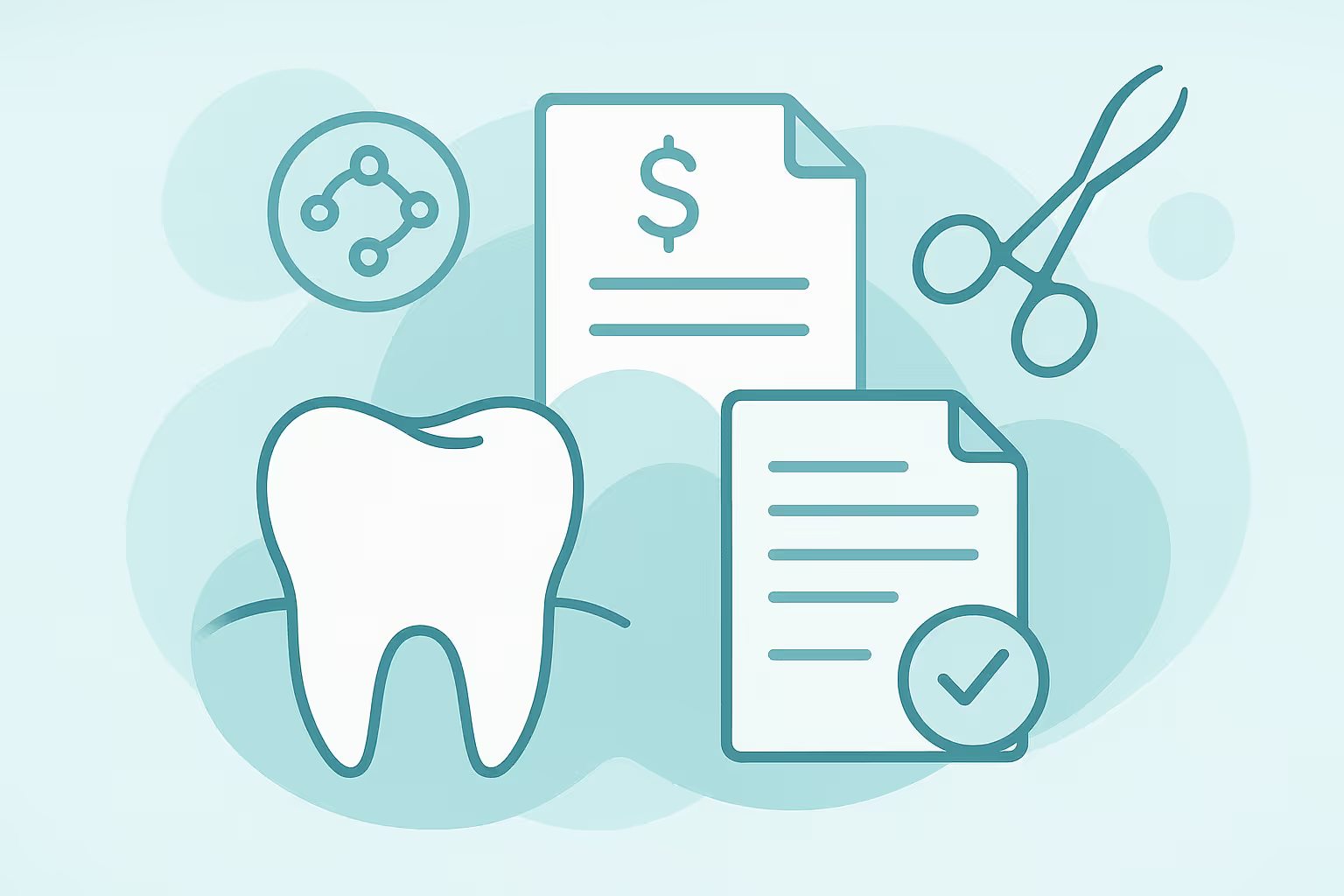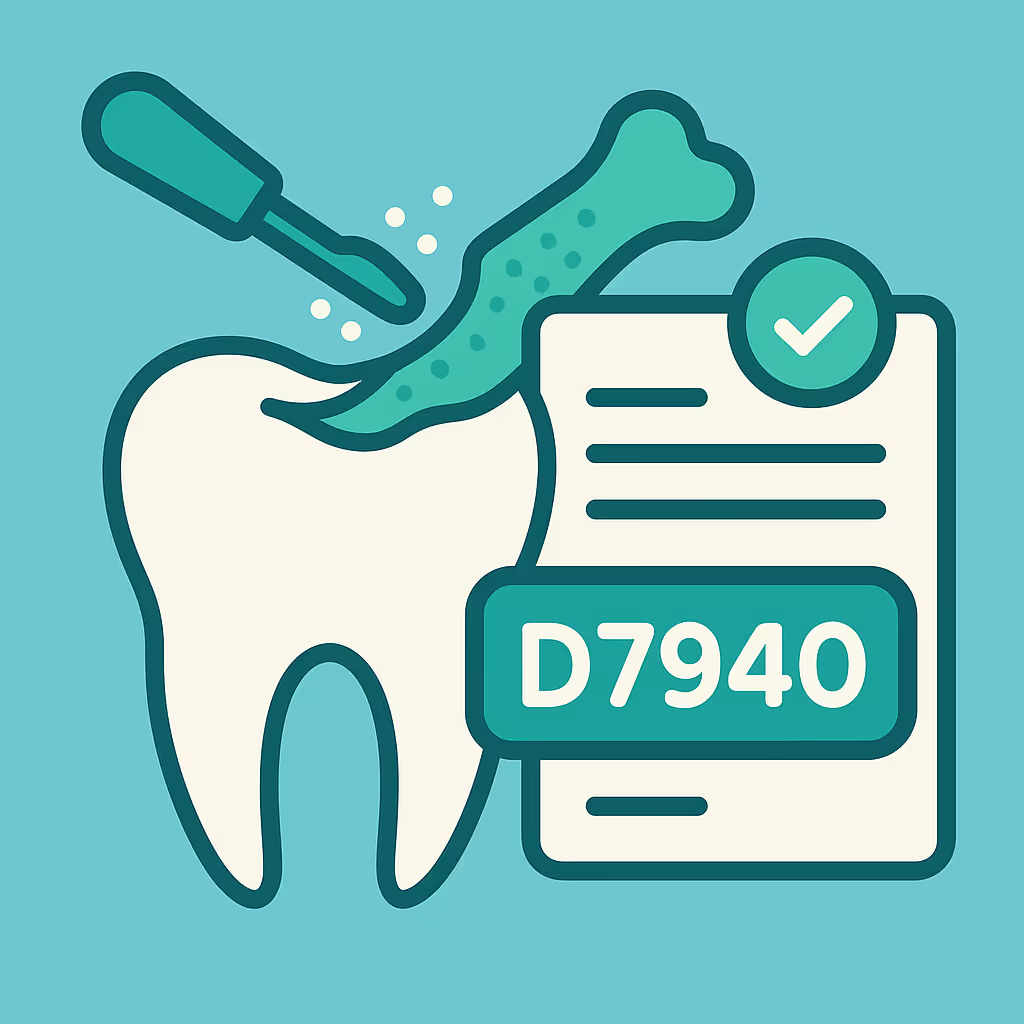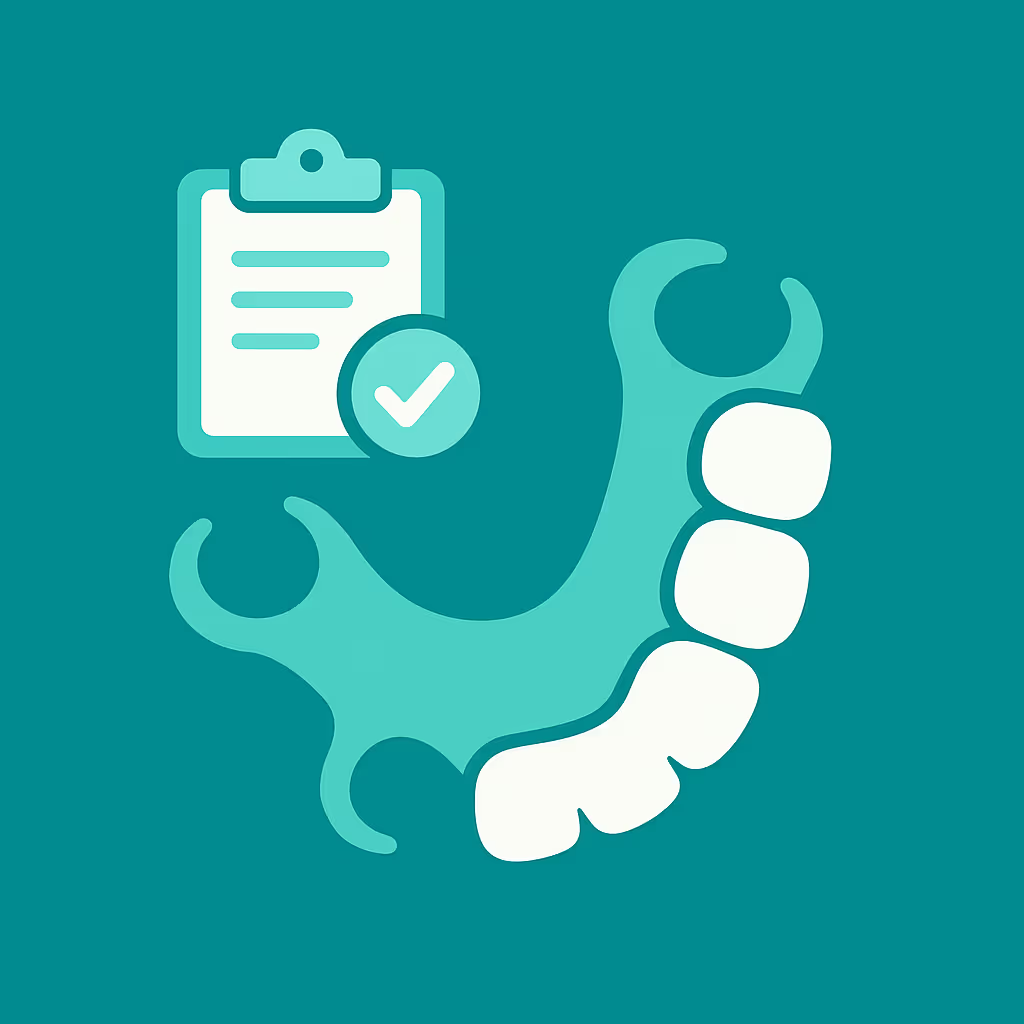Understanding Dental Code D7963
When to Use D7963 dental code
The D7963 dental code is designated for frenuloplasty, a surgical procedure that modifies the frenum—typically the lingual, labial, or buccal attachments in the mouth. This code is distinct from D7960, which is used for frenectomy, as D7963 involves repositioning or alteration of the frenum rather than complete removal. Dental teams should use D7963 when the clinical objective is to relieve tension or functional limitations caused by an abnormal frenum attachment, often to improve speech, oral hygiene, or prosthetic fit.
Documentation and Clinical Scenarios
Accurate documentation is essential for successful reimbursement and compliance. When billing D7963, ensure the patient’s chart includes:
- A detailed clinical description of the frenum’s impact on oral function (e.g., speech impediment, difficulty with oral hygiene, or prosthetic instability).
- Pre-operative photographs or intraoral images.
- Specifics of the procedure performed, including the technique and anatomical site.
- Post-operative notes and follow-up care instructions.
Common clinical scenarios include patients with tongue-tie (ankyloglossia) affecting speech, infants struggling with breastfeeding, or adults experiencing discomfort with dentures due to frenum interference. Always document the medical necessity and anticipated benefits of the procedure.
Insurance Billing Tips
To maximize reimbursement for D7963, follow these best practices:
- Insurance Verification: Confirm coverage for frenuloplasty with the patient’s insurer before treatment. Some plans may categorize D7963 as a medical rather than dental benefit, especially if the procedure addresses speech or feeding issues.
- Pre-Authorization: Submit a pre-authorization request with supporting documentation (photos, clinical notes, and a letter of medical necessity) to reduce the risk of claim denial.
- Claim Submission: Use the correct CDT code (D7963) and attach all relevant documentation. Clearly state the functional problems addressed by the procedure.
- Appeals: If a claim is denied, review the Explanation of Benefits (EOB) for the denial reason. Prepare a thorough appeal with additional clinical evidence and a detailed narrative from the provider.
Consistent communication with payers and meticulous record-keeping are key to successful claims processing for D7963.
Example Case for D7963
Consider a 10-year-old patient presenting with a restrictive lingual frenum causing speech difficulties and social discomfort. The dental team documents the patient’s speech assessment, photographs the frenum, and consults with a speech therapist. After insurance verification and pre-authorization, the dentist performs a frenuloplasty (D7963), repositioning the frenum to allow greater tongue mobility. Post-operative notes detail the improved range of motion and follow-up care. The claim is submitted with comprehensive documentation, resulting in prompt reimbursement.
This example highlights the importance of thorough documentation, proactive insurance communication, and clear demonstration of medical necessity when billing D7963.





